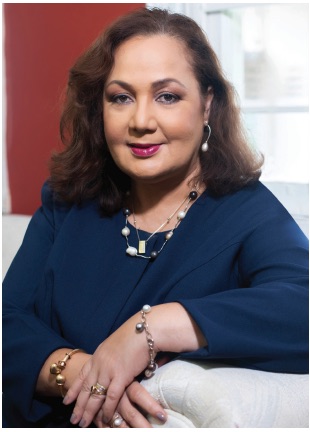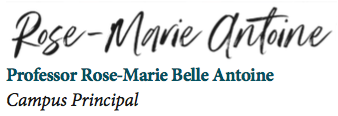
In a December 2023 post entitled “The Transformation of Higher Education”, Dr Francesc Pedró, Director of the UNESCO Institute for Higher Education in Latin America and the Caribbean (IESALC), states that:
“Higher education changes, yes, but always preserving the continuity of those elements that the academic community itself considers essential and that continue to attract students, at least for the time being.”
He was looking in particular at the forces being brought to bear on institutions of higher learning in the region, the way those institutions adapt to these forces, and the analysis of the sector and its fortunes - whether “messianic” or “exacerbated pessimism” as he describes them.
As we draw closer to Academic Year 2024/2025, it is a good time for all of us at UWI St Augustine to evaluate our own outlook and activities.
Our approach has been one of optimism, not because we disregard the difficulties we face, but because we believe in the capacity of the institution, as well as Caribbean society, to succeed despite the challenges.
Dr Pedró lays out areas of what he calls “progressive evolution” that impact higher education and its providers. These include changing student profiles (including demographic shifts), the structure of educational programmes, and how programmes are taught.
As I have said often, the institution must also play a very prominent developmental role for society, which includes not only education, but research, economic development, policy support, outreach, and information services.
The key is in getting the balance right between performing these functions while increasing our financial strength and self-sufficiency. We must continue to demonstrate our long legacy of bringing value to Caribbean society while also using our creativity, efficiency, and acumen to enhance existing revenue streams and open new ones. The sweet spot is when we can do both at once.
One key area that the campus has been emphasising to bring new business to the campus and at the same time meeting the needs of the changing market is the promotion of Continuing Professional Education (CPE) short courses. All of our faculties are heavily engaged in this initiative, combined with more technologically savvy methodologies and hybrid learning to achieve this new emphasis.
Indeed, this is one of the areas Dr Pedró points to as very relevant for universities. “In Latin America and the Caribbean,” he says, “it is difficult to imagine an educational strategy for the future that does not contemplate the development of lifelong education policies with a leading role for higher education institutions.”
For example, this July, we finalised a partnership with the Ministry of Public Administration to assess the training needs of the public service, and develop and provide demand-focused short courses for them. The programme will begin with a cohort of 3,000 learners with the goal of eventually training 9,000 per year. This exciting venture will adequately support the professional development and capacity-building needs of T&T's public service.
Yet, even as our campus continues to evolve its strategies for the delivery of educational services to attract new students/clients, it is involved in many other business development activities. Some we have discussed in this message and covered in UWI TODAY before, and others that are equally as exciting and will be revealed soon. We were proud to display some of our innovative scientific products such as our roofing sealants, organic pesticides, and chocolate at the recently concluded Trade and Investment Convention.
On the regional development side, we have entered into several new partnerships, including, most recently, an agreement with the University of Trinidad and Tobago (UTT) to produce the Caribbean’s first catalog of carbon storage sites in depleted oil and gas reservoirs throughout Trinidad and Tobago. This “Carbon Capture Utilisation and Storage Collaborate” (CCUS-C) is part of a national climate change mitigation plan. It is supported by the Government of Trinidad and Tobago, the energy sector, and international partners.
As Campus Principal, I have been greatly pleased by the work of the many campus personnel responsible for bringing these partnerships to fruition, as well as our partners themselves – in government, industry, civil society, and internationally – that have shown such enthusiasm and camaraderie to work together, create new opportunities, and support society.
Undoubtedly, we are in an era of risk and transformation, but the other side of risk is reward, and many wondrous things are the product of transformation. It is my belief that the determining factor of our fate is outlook and ability. And both are in our favour.
